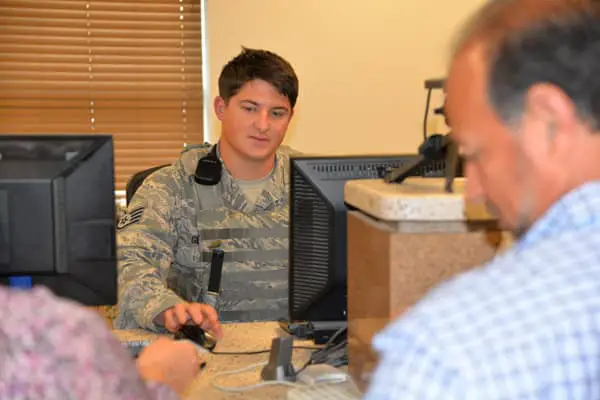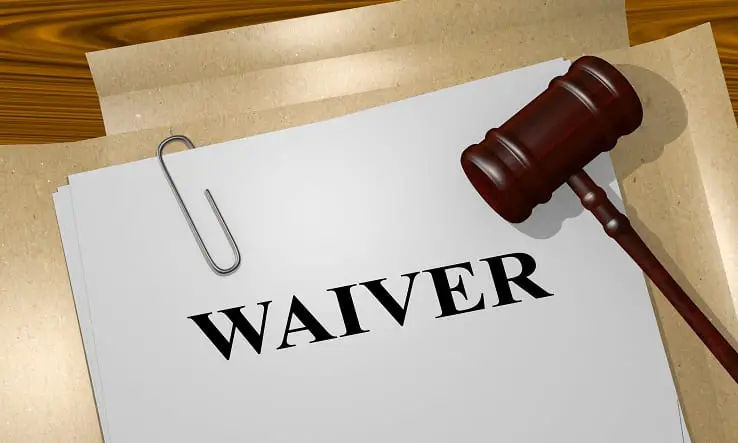Joining any branch of the military is an honour for many and many will want to enlist to serve and protect their country. However, for those who have a criminal record, the question of being able to do so gets mixed responses because the only answer is “it depends”. There’s no one answer to this question much like there’s no one criminal record that people have.
Each case is dealt with case by case by the military and you will be expected to follow the procedure in enlisting and fully cooperating with the process.
We’ll examine the different branches of the military and how they see those with criminal records, as well as help you to create plans for how to best enlist even if you have a felony charge on your record.
So, can someone with a criminal background join the military?

Firstly, there are five arms of the military – the Army, the Navy, the Air Force, the Marines, and the Coast Guard. In addition to the conventional five arms, there is also the National Guard. Each of these branches has a different but largely similar enrollment process that you will need to investigate further before being able to answer confidently if they would accept your application.
In order to find employment and the opportunity to bravely serve and protect your country, you will need to be able to show a different set of moral characteristics that each considers being important.
However, regardless of which one you are intending to apply to, we can say with certainty that applying with a felony conviction or a number of misdemeanors will make the task an uphill battle.
How are military applicants screened?
When applying, military recruits must go through the process of a Moral Character Screening of Credit and Criminal Background – this is a multiple-step background check that investigates the way in which an individual’s criminal records, credit issues, and juvenile adjudication records are examined.
This process is thorough and is usually accompanied by interviews to find out the reasons, conditions, and appropriate changes that have been made since any crimes or credit concerns arose.
If you have a felony charge on your record but have been lucky enough to have your record sealed or expunged, you will still need to state in the application that you were arrested and / or convicted of these crimes due to Title 32, Chapter V, Section 571.3(c)(2)(i) of the Code of Federal Regulations – remember, if you fail to declare a criminal record at this stage, you could be committing a federal offense and could potentially face further jail time for fraud (which usually carries a year to three years sentence).
As with all applications by felons, honesty should be your primary concern and you should thoroughly check any applications to ensure that you have not accidentally failed to declare something of importance.
Read Also: Can You Join The Military With Asthma?
I have a criminal record – am I going to be turned down?

Again, “it depends”. Soldiers and those who serve need to show that they have good moral character. They need to show that they are reliable when they are called upon. They need to show that in stressful situations, they will not break international law.
This is important as you need to show that you have changed since the time of your crimes and are no longer the person who had committed them! If you have committed one misdemeanor when you were 15, it probably won’t hold you back (note: you still have to declare it as the military background checks are extremely thorough and it will show up even if it is sealed or expunged).
If you have committed a series of misdemeanor crimes after you became an adult, you might struggle. But, if these stop a number of years ago and you can prove that you are a changed man or woman, you may be more likely to obtain a waiver – special permission granted by the army to overlook your criminal past and allow you to enroll.
I have a bad credit history – am I going to be turned down?
Much like a criminal record, this depends on how bad. This will be investigated at the same time as your criminal background check.
If you have a bad credit history, you may be asked to explain it. Financial crimes and difficulties can show a person in a bad light, even if there were circumstances that were out of their control.
The best policy is to be as honest as you can, show that you have changed your financial planning since that point, and have tried your best to improve your credit rating. If you can do these, then you will be more likely to be granted a waiver.
I was dishonorably discharged, but want to reenlist – am I going to be turned down?
Yes, almost certainly. Sorry, but in this situation, you are seen in the same light as having committed a serious felony.
You are extremely unlikely to be allowed to serve your country again regardless of how well you adapted back to civilian life or how much you have changed since that instance – a dishonorable discharge will effectively bar you from future military employment.
Can a felon join the military?

Although we already addressed criminal records and enlisting, felonies really should be focused on separately. In your past, you committed a serious crime. Now, you believe that you have paid your debt to society. Hopefully, you believe that you are a reformed individual, ready to start your life again as a trustworthy citizen. So, it should be easy, right?
This largely depends on a number of factors, however, but just because you have a felony charge does not mean that you are automatically disqualified from the profession in any branch.
It is quite unlikely that you will get into the army through the normal means that a person with a clean record would – the military wants someone of “good moral standards” who they can rely on, which sadly isn’t how people think of felons.
You have an uphill task proving that you can be a reliable member of the armed forces, but certain crimes will be more likely to lead to rejection than others. For example murder, armed robbery, and treason will almost certainly not allow someone to enlist regardless of what else they do.
Crimes that have no regard for the life of your fellow citizens or show an abuse of firearms will cause your potential employers to worry about how trustworthy you would be with a firearm of your own, especially in a warzone situation.
Additionally, if you have a felony against your name for firearm-related crimes, it is unlikely that you will have your rights restored (at the very least, easily). You need to consider that aspect, as if you cannot legally use or possess a gun, you will not be able to serve your country.
Crimes against America will disqualify you as you need to show that you want to serve and protect the country that you are enlisting with, not sell it out or abandon it in its time of need. If you have felony charges of a lesser degree or a long list of misdemeanors, there still might be a path to service for you.
What is a waiver?

This has come up a few times – a waiver is an official declaration that the military (whichever branch) has decided that your criminal or financial past is not enough of a problem that it should stop you from enlisting.
These are typically granted to felons who have made the proper changes in their lives to move past their criminal pasts and pay their debt to society through service.
Just applying to join the army with a felony past won’t grant you a waiver. If you show them that you are not a) a security risk, b) at risk of disciplinary action, and c) a reformed person of good moral character, then you are more likely to be accepted.
Read More: How Do I Get A Military Waiver For Criminal Record?
When are waivers granted?
They are unlikely to be granted to those that have outstanding judicial restraints (bonds, probations, currently imprisoned, currently paroled, or on the run from the law) or significant criminal records of a serious nature. Each case is handled individually by an expert committee – there is no automatic system that will grant a waiver.
Your ability to show that you have adapted back to civilian life is important in gaining a waiver. Showing the reasons why you have a criminal record is important in gaining a waiver. Being able to answer the “who, what, when, where, and why?” questions about your offense is important.
You need to think carefully about gaining recommendations from people in your community that others trust – school teachers, ministers, and those that work in law enforcement.
If you can get a positive report from a number of people working in these fields, you will have a better chance of showing that you are a reformed individual. If you are a reformed individual, you will have a better chance of being granted a waiver.
Recommended: Can Felons Join The Military?

Hello I am a reformed felon. Have been out of jail for 3 years now and have adapted to the way of life , a good life but this past crime record has destroyed me of my privileges with moving forward. I face many struggles they to find employment. I’d always wanted to serve but life had things in stored for me. I can sincerely say Id wish I’d join fresh out of high school.